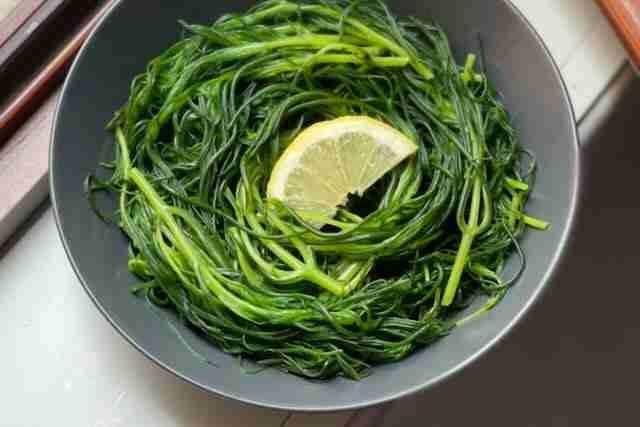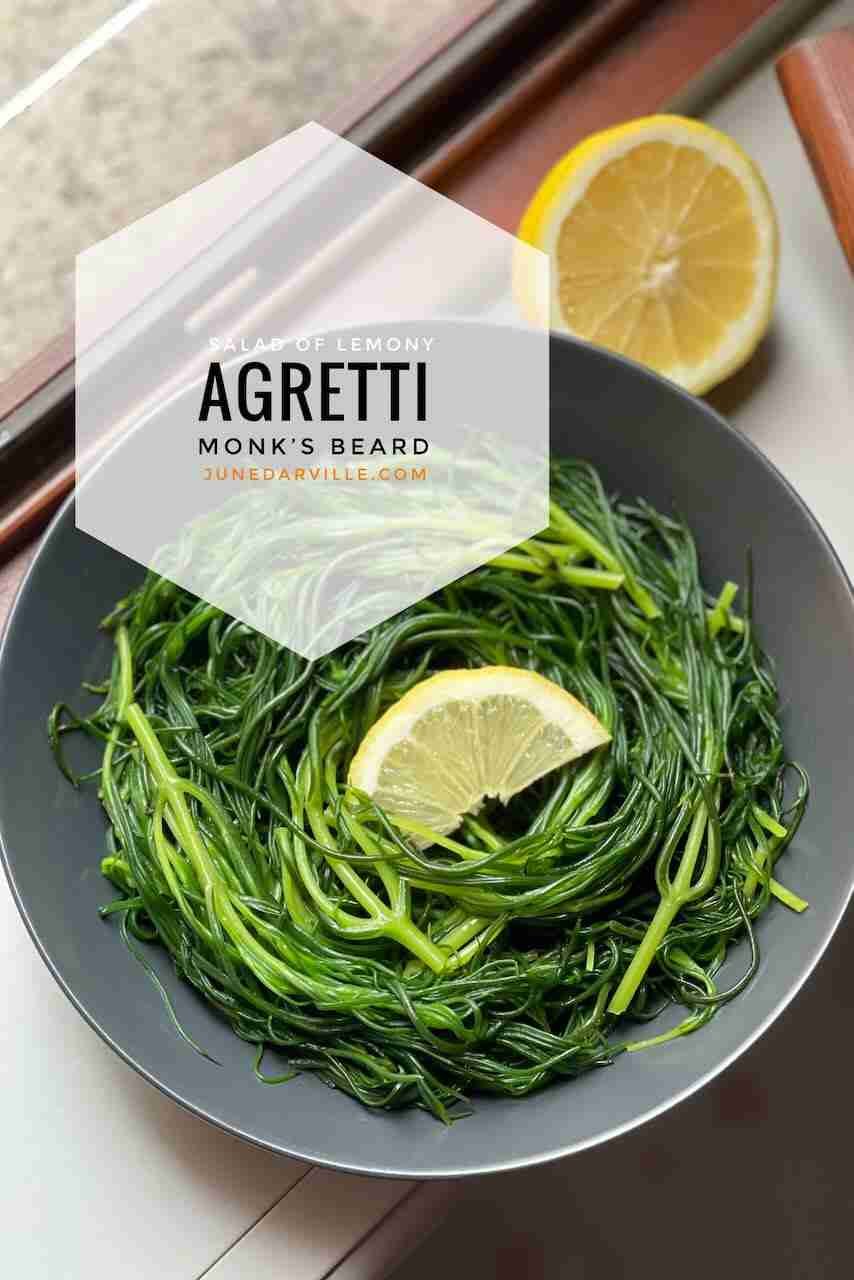 Agretti, also known as barba di frate, saltwort or monk’s beard, is a spring vegetable that belongs to the Chenopodiaceae family. It is similar to chard and spinach.
Agretti, also known as barba di frate, saltwort or monk’s beard, is a spring vegetable that belongs to the Chenopodiaceae family. It is similar to chard and spinach.
Agretti is a wild weed that grows in marshlands.
It resembles long, think green grass and has a slightly tart taste when you eat it raw.
Agretti has a rich history in Mediterranean cuisine.
It grows during the spring and early summer months in sunny coastal marshlands around the Mediterranean basin. And that is because the salty sea air and sandy soil provide the perfect growing conditions.
Farmers in Italy have been cultivating agretti for centuries, using traditional methods that honour the land and the crop.
I bought my stash of fresh agretti at the Rialto fish and vegetable market in Venice!
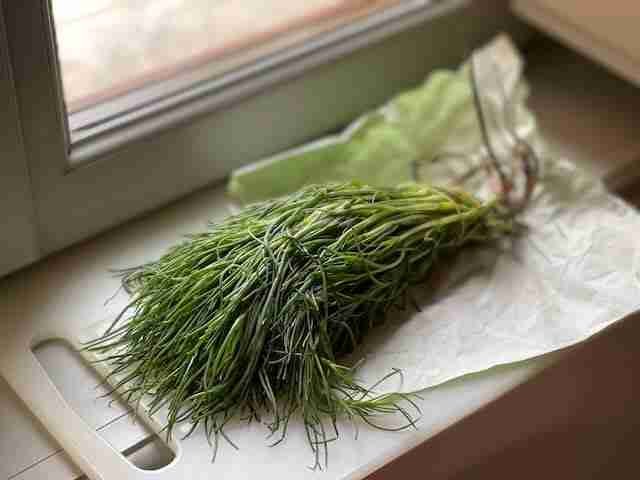
What does agretti taste like?
When I first saw it in an Italian supermarket, I thought monk’s beard looked very similar to samphire and as expecting it to taste like that as well. To my surprise, it didn’t!
It has a unique taste that combines freshness and earthiness.
When eaten raw, its flavor is slightly tart, akin to young spinach or sorrel. However, once cooked, monk’s beard transforms into a delightful vegetable with a mild, grassy taste. Imagine the essence of spring greens, kissed by the sun and softened by gentle cooking.
Whether blanched, sautéed, or added to salads, monk’s beard offers a refreshing and delicate culinary experience.
Agretti in the kitchen
 Can you eat monks’ beard raw?
Can you eat monks’ beard raw?
Yes, you can definitely eat it raw.
To cook it, the easiest method is blanching: bring a pot of water to a boil, remove it from heat, add the washed agretti, cover, and let it sit for a minute or two until slightly wilted.
Add a few squeezes of lemon juice and a tablespoon of good quality olive oil to the cooked agretti, as cooking destroys the vitamin C needed for maximum mineral absorption. Enjoy this nutritious vegetable as a side salad, or in warm meals such as pasta, seafood or risotto dishes!
Its unique flavor profile makes it a sought-after ingredient among chefs and home cooks alike.
Health benefits
Monk’s beard is packed with lots of nutrients!
Rich in water content and low in calories, it provides essential nutrients such as vitamins (including vitamin A and vitamin C), minerals (such as calcium), and antioxidants.
How to clean agretti for cooking

A delightful spring delicacy!
- fresh agretti
-
Let me guide you through cleaning and preparing agretti for cooking!

-
Start by cutting off the woody roots (the purple and white parts). Use only the bright green parts of the plant.
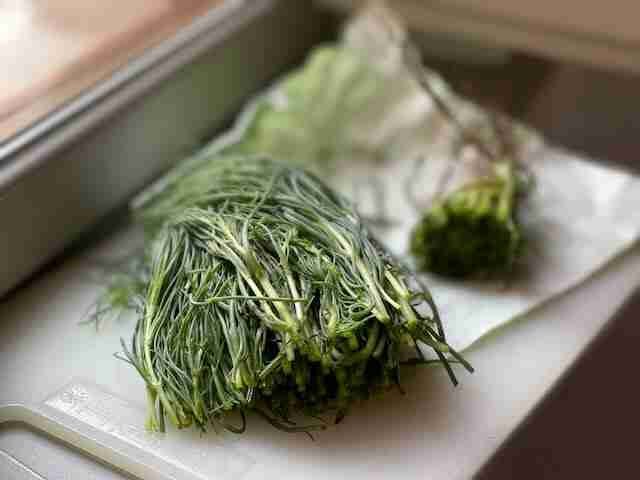
-
Rinse the agretti thoroughly in cold water to remove any dirt or sand
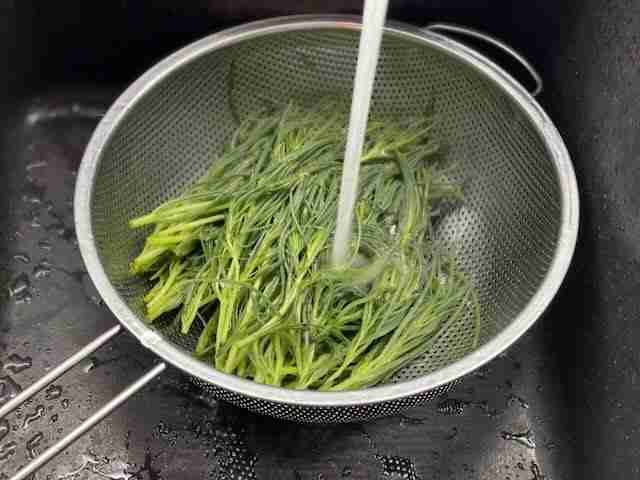
How to cook agretti
You can cook it in different ways.
I boiled it to make a lovely side salad with olive oil and lemon and served it with grilled sea bream.
Here’s how I did it!

- rinsed agretti
-
Boil the cleaned agretti in simmering hot salted water for about 2 minutes until the agretti is tender but still al dente.
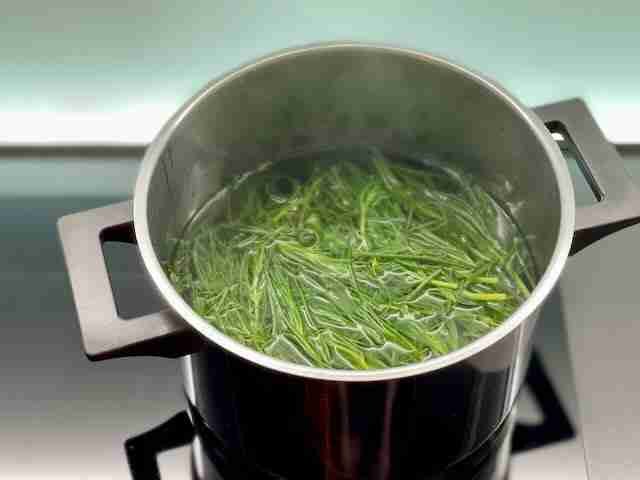
-
Drain it and rinse under cold water to stop the cooking process.
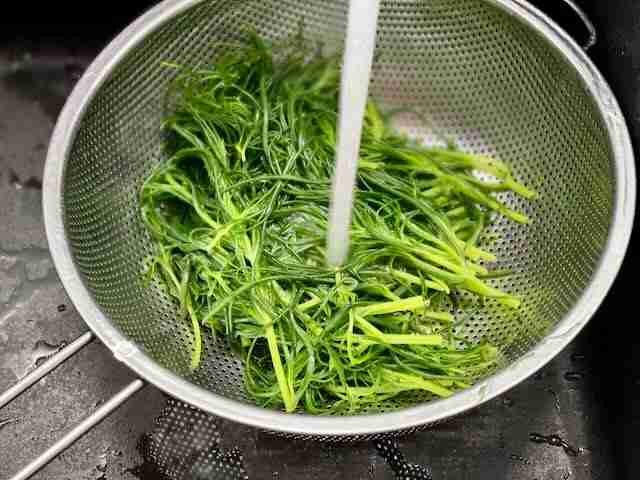
-
Serve with a drizzle of extra virgin olive oil, pepper, salt and a squeeze of fresh lemon juice.
